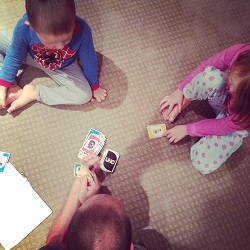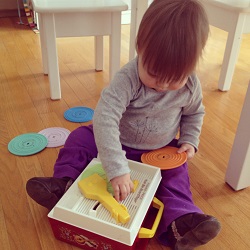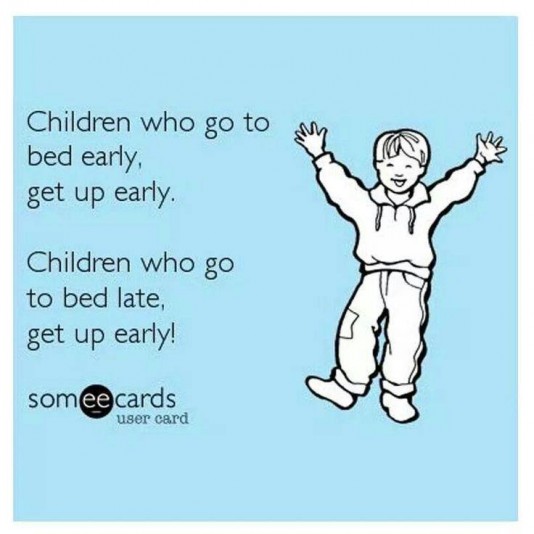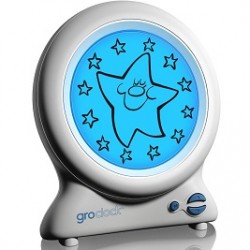 |
 |
 |
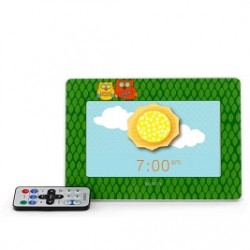 |
Using Child Alarm Clocks – Advice from an Expert
Also known as behavioural clocks, these are helpful tools for communicating time to children who aren’t quite ready to tell time with conventional digital or analog clock. Most often, behavioural clocks function by using a light or image to communicate a time for sleep and a time for waking.
I use behavioural clocks most frequently for early morning wakings, but also for children who are having night wakings or even families experiencing bedtime battles. There are MANY behavioural clocks on the market, they’re all good (although none are great… if anyone is looking into designing one and would like some kick a$$ features from the thoughts of someone who lives and breathes pediatric sleep, please call me) and they will all be effective if parents can implement them correctly and consistently. It’s less about which clock you use, and more about HOW you use it.
I’m not a product pusher. I think we can all make due with less. If you’re interested in re-purposing things you may already have around your home, consider an old radio alarm clock (set to a quiet, classical station or children’s CD) or those Christmas light timers to turn on a lamp or nightlight in your child’s room. Just make sure they’re out of reach because I have yet to find a preschooler or toddler who won’t press buttons, flick switches or turn dials.
Whatever you decide to use, make sure to lay the groundwork. These are some guidelines specifically for use of the GroClock. It’s probably the behavioural clock I encounter and recommend the most often because it’s fairly inexpensive, simple and usually easily available from some good online vendors (what busy, tired parent has time to go out and shop?).
6 Simple Steps
1) Ensure your child is 3+ years OR you’re 100% convinced they would be able to understand a behavioural clock. Remember that children under the age of 3 tend to be very impulsive. If you’re questioning whether or not your child would be able to comprehend it and follow it’s message, don’t use it. What we do here is set children up for success… ensure they could be successful with this clock before you make the decision to introduce it.
2) Follow the instructions. Make sure you’re proficient in using the device before you show it to your munchkin.
3) Explain how your child is to use it. “Until the yellow light comes on, we need to stay quietly in bed and try to go back to sleep.”
4) Also explain that it’s very grown up and your child is not to touch it (even though you know they will). Use the “locking” mechanism as well. Kids love to press buttons. Make sure they aren’t going to reset it or change the time on you.
5) Turn off the backlight. It’s backlit and yes, I’m asking you to turn it completely off. At night, there’s a blue backlight with a star, at the wake up time, there’s a yellow backlight with a sun. You can dim the night time backlight, all the way to off. Use this clock with the backlight off!
We know blue light can have a melatonin inhibiting effect, which is counter productive to circadian rhythms. Our bodies (especially our children’s bodies) need to produce that melatonin to get the maximum benefits from a long, restful sleep. The yellow light will still turn on and sun will still come up when the night time backlight is off.
6) Celebrate your successes, but don’t dwell on failures. “I am so happy that you were able to stay in your room until the sun came up. You must be so proud of yourself!” If it didn’t work out, be kind, but firm in encouraging your child to follow their sleep manners and stay in bed quietly until their sun comes up. If aren’t able to follow all their sleep manners, a simple “it was hard to stay in your room this morning, but we can try again tomorrow.” Move along, there’s no need to discuss it further.
Remember that a behavioural clock is only a tool in the parenting toolkit. Parents are responsible for using and enforcing the tool appropriately.
If you find you’ve followed all of the above and are STILL having trouble with your child going to sleep and stay asleep until morning, don’t hesitate to contact me. Sleeplessness and early mornings do not have to be your normal.
First time buyers from Well.ca can use the code “sleeperific14” for $10 off a purchase over $40.
The following clocks are available from Amazon.ca
 |
 |
 |
 |
 |
 |


